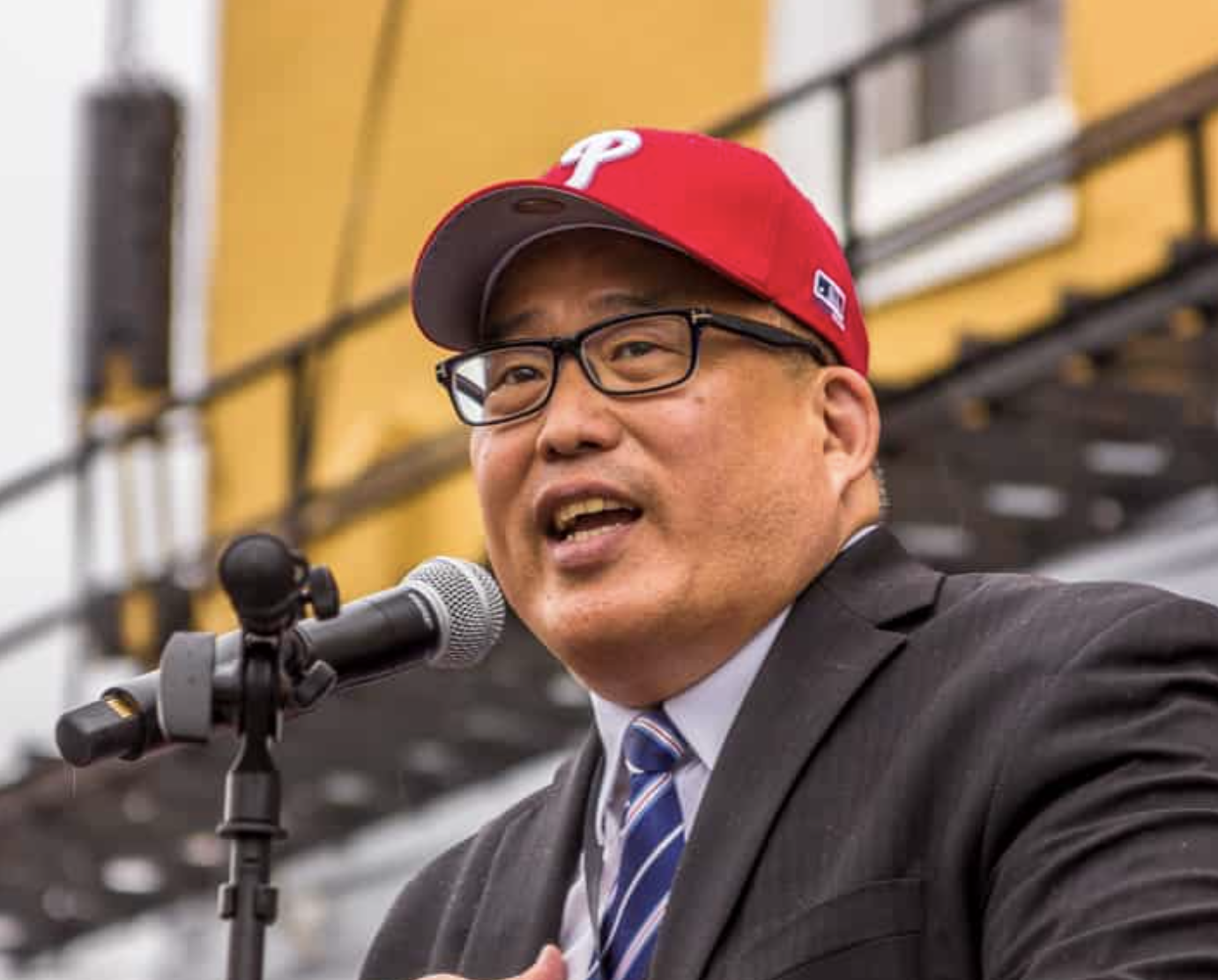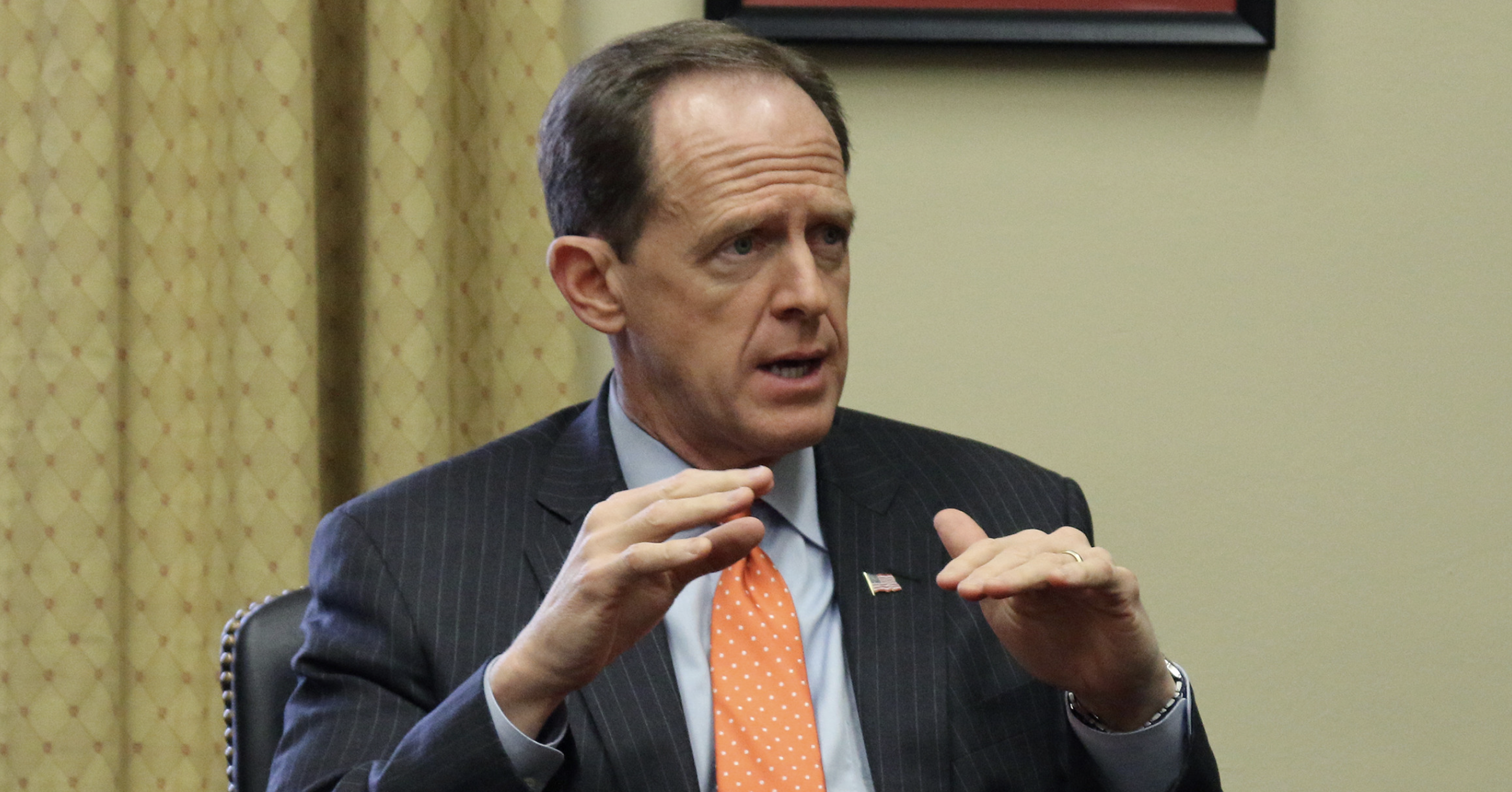As Philadelphia Goes, So Goes the Delaware Valley?

Why should suburban residents care about Philadelphia’s next mayor?
David Oh, a Republican running for Philadelphia mayor, said spreading crime is one reason. Economics is another. The city remains the major economic force in the area, and what happens in Philly ripples through the entire Delaware Valley.
“Philadelphia is a very important economic engine for this state, and it most dramatically impacts our surrounding counties. And for people in the suburbs, they oftentimes…experience the ability to enjoy a suburban lifestyle and yet go to the Eagles game, go to live entertainment in the city, go see the museums, enjoy what’s there in a big city while living, in a nice suburban setting,” said Oh, a lawyer who grew up in Philadelphia and served on the city council until stepping down to run for mayor.
“Unfortunately, they probably are not going take public transportation into the city like they used to, or they may not even drive into the city. It’s very difficult to have such a great amenity for them as universities and research and hospitals and all that great stuff in our city that you cannot visit and go out to dinner and things like that.”
“The other thing is that the crime in our city impacts our surrounding communities. One, unfortunately, crime imitates crime. People out in the counties start seeing the things that are happening in Philadelphia, and they emulate it.
“They also come into our city, and unfortunately, so many people who are addicted to heroin and things like that end up not just coming to our city but living here for years at a time (with) their parents and their loved ones trying to find them.”
“They’re only attracted to Philadelphia because we have the most hands-off policy where drug-addicted people end up in the most inhumane conditions on Kensington Avenue because of the policies of the city. That is to let them purchase their drugs, to let the drug dealers exist. And, by the way, the drug dealers (are) murdering each other because of so much money that is there,” said Oh.
Paul Martino, a Bucks County resident and owner of the new Philadelphia sports bar Bankroll, agrees that crime is a major problem for the city.
“Crime is one the primary issues facing the city of Philadelphia. Many suburbanites refuse to come to the city to visit its businesses, historical and cultural locations as a result. This is why people from Bucks and Montco are following this year’s Philly mayor’s race much more closely than prior years,” said Martino.
Jeff Jubelirer, vice president of Bellevue Communications, said, “What happens in Philly affects everyone in the region, albeit in different ways. When suburbanites have a negative perception of Philadelphia – whether fair or not – the implications are tangible.
“They work, play, and visit the city, and their tax dollars and spending contribute to its betterment. Therefore, engendering confidence among suburbanites constitutes a critical task for Philadelphia’s next mayor,” Jubelirer said.
Guy Ciarrocchi, former president of the Chester County Chamber of Business and Industry and a former Congressional candidate, likes Oh.
“He’s a good guy. Has really grown into his role—understands issues, how government works (and doesn’t) and focuses on people, not grandiose policies or ideology,” said Ciarrocchi, who grew up in South Philadelphia.
“We care not just in a good government or humanitarian way like I hope the drought in Sudan ends, because it impacts our quality of life,” Ciarrocchi said. “It affects the growth of our economy—the companies that support and interact with major Philadelphia companies. And bad economics, bad schools and rising crime eventually come into the bedroom communities of the suburbs.”
“And, its also about our overall quality of life—from the zoo to the Franklin Institute, from the orchestra to the stadiums—as traveling to an annoying Philadelphia is a part of the reason many of us live in the suburbs—a car ride or train ride away.
“A growing, vibrant Philadelphia helps our economy and quality of life, A shrinking, decaying Philadelphia does the opposite.
“David can help by winning—or, at a minimum, being the grown-up and the kitchen-table candidate making sure that the campaign is about fighting crime, having good schools and helping businesses create jobs, rather than focusing on plastic straws and defunding the police,” said Ciarrocchi.
Albert Eisenberg, a political consultant and founder of BlueStateRed, also believes that Philadelphia and its mayor are important to the health of the suburbs.
“Suburban voters, and voters from across the state, should care very much who is elected mayor of Philadelphia,” said Eisenberg. “The city is the economic and cultural driver for our entire state, and with issues like crime spilling over the city line, higher taxes on business owners, and building a city and region that people actually want to move to, that will affect regular people in the collar counties as well. People should keep a close eye on David Oh and his campaign for mayor, especially with some very far-Left candidates with the potential to come out of the Democratic Primary in May.
Joyce Koh, of Bala Cynwyd, donated to Oh’s campaign. She believes a vibrant Philadelphia is with its diversity of arts, culture and food is “vital” to the suburbs.
“The city is like the warmth of the the sun,” Koh said. “If our sun is dying, our suburbs will fail.”
Mark Ruhl, a Chester County resident who supports Oh, said, “What goes on in the city affects the suburbs. We used to go into the city more but we stopped going in because we don’t feel safe any more.”
“And then we see, for example, when, when the lawlessness goes from Philadelphia out into the suburban areas, carjackings, you know, all kinds of shootings,” said Oh. “The thing about the crime today is it is traveling, traveling from the neighborhoods where it used to be contained, into Center City, into some of the nicer neighborhoods of Philadelphia and out into the suburban areas.
“We really need to stop that because the thing is, we have to stop the next generation and the following generation of violent criminals that is being created here in Philadelphia, because of really bad policies,” Oh said.



